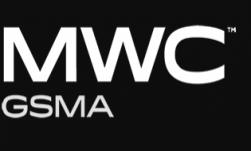News of Digital Factory
Time left to the end of event
Available services for Digital Factory
Digital Factory travel services
Digital Factory Exhibition services
Most visited Information Technology & Telecommunications
Video clips of Digital Factory
More Information about Digital Factory
- More Less
In the future suppliers, producers and clients will all be integrated and networked. The question is not whether industry is going to adopt this new digital scenario, but rather how efficiently it will do so. What is needed is a strong, vital network between IT and mechanical and electrical engineering. digital factory allows for the optimization of processes and the development of new products that conserve resources.
Radical change awaits us, in which entire operating flows will be transformed. Flexibility and individualized production and logistics are prerequisites for remaining competitive. Almost all industrial companies have recognized this and want to digitize their entire value chain by 2020. German industrial companies alone are investing EUR 40 billion for this transformation. For example, companies that specialize in machinery and plant engineering already use sensors that automatically indicate whether a machine needs maintenance – long before the machine breaks down. But the networked industry not only brings opportunities. There are also risks, for example in data security. How can companies protect themselves effectively from cyber-attacks? And how can they prevent product piracy?
Main sectors of Digital Factory:- Virtual product development (CAx)
- Product lifecycle management (PLM)
- Production and process planning (ERP, PPC)
- Rapid prototyping and rapid manufacturing
- Process integration
- manufacturing / automation (MES)
- Virtual commissioning
- Offline programming and installation
- Visualization and simulation
- Additive manufacturing
For further information, please click here .
The global players at this year’s HANNOVER MESSE include Siemens and Microsoft. Venue of Digital Factory
Recent events in Hanover
Weather Forecast of Digital Factory
Comment
You can also enter your comment about this event
Your favorite events
-
![Wire & Tube ilikevents]()
Wire & Tube
Dusseldorf , Germany
-
![MTA Vietnam ilikevents]()
MTA Vietnam
Ho Chi Minh City , Vietnam
-
![SaMoTer ilikevents]()
SaMoTer
Verona , Italy
-
![Inernational Glass Manufacturing Show ilikevents]()
Inernational Glass Manufacturing Show
Dubai , United Arab Emirates
-
![GITEX EUROPE ilikevents]()
GITEX EUROPE
Berlin , Germany
-
![Worlddidac Asia ilikevents]()
Worlddidac Asia
Bangkok , Thailand
-
![Power-KazIndustry ilikevents]()
Power-KazIndustry
Almaty , Kazakhstan
-
![Metalex Vietnam ilikevents]()
Metalex Vietnam
Ho Chi Minh City , Vietnam
-
![POWER-GEN International ilikevents]()
POWER-GEN International
سن آنتونیو , United States of America
-
Fasteners & Equipment Exhibition
Guangzhou , China
-
![FAFGA Alpine Superior ilikevents]()
FAFGA Alpine Superior
Innsbruck , Austria
-
![CXO 2.0 Conference ilikevents]()
CXO 2.0 Conference
Dubai , United Arab Emirates
-
Event rate of 1 vote
Digital Factory will be held 31 Mar to 04 Apr 2025 in Hanover, Germany. Digital Factory is a Leading Trade Fair for Integrated Processes and IT Solutions and is annually a part of HANNOVER MESSE since 2004. With the leading trade fairs taking place in parallel in all sectors of industry, Digital Factory will help you to discover first-hand how market leaders from across the globe are helping shape the future with their new concepts and leading-edge production systems. Digital Factory is an event and I like events...


















